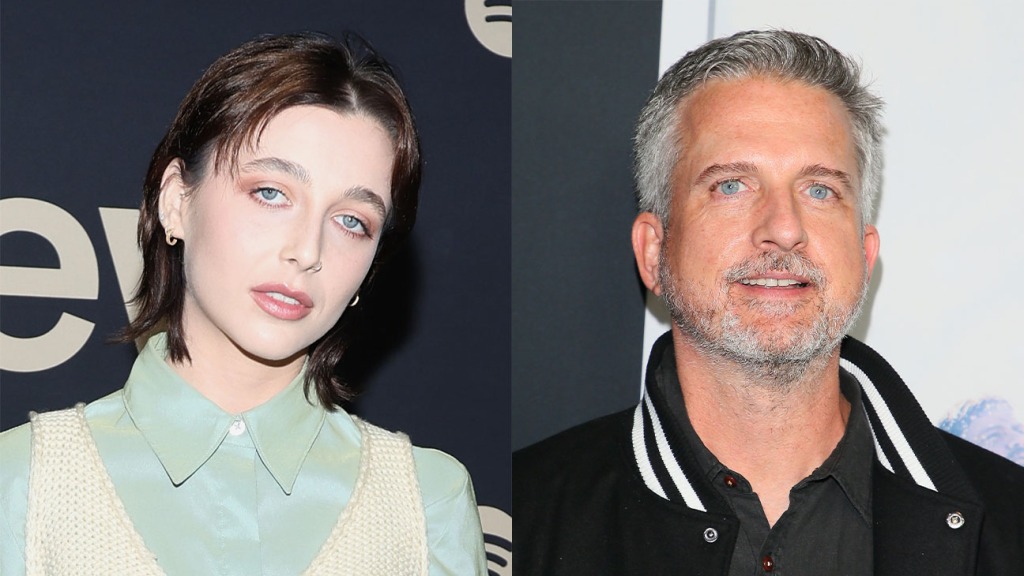
On Wednesday, Spotify hosted a cross-generational conversation between popular Gen Z content creator Emma Chamberlain and The Ringer founder and CEO Bill Simmons. Both have podcasts in common: Chamberlain’s Anything Goes podcast has been hosted by Spotify for only two weeks as part of an exclusive deal (and has already more than doubled in listenership, the company said), and as part of Spotify’s purchase of The Ringer for $250 million in 2020, Simmons’ network has over 50 podcasts on the platform.
Interviewed by Spotify’s global head of public affairs Dustee Jenkins, Chamberlain and Simmons shared insights about the importance of authenticity in audio, why a pivot to video in podcasting makes sense, and where they see the industry heading.
“It’s always been so exciting to me to just be vulnerable in a new way online … I started podcasting because I thought that the medium would be perfect for me. I’ve always been a talker,” Chamberlain shared. “I just want to talk about everything and I think that’s the magic of what podcasting is. It’s this long form entertainment … a great way to dig into ideas.”
Known for her disarming charisma and shamelessly authentic storytelling style, Chamberlain said that authenticity online has always come naturally to her, and that’s been part of Anything Goes’ success. “For the type of content that I want to make, in order for it to be entertaining to anyone it has to be genuine, there has to be some sort of passion behind it,” she said.
Simmons agreed that authenticity is the key for content to “translate to something that’s going to last.”
“Social media is the cocaine of this generation,” the Peabody and Emmy-award winning sports and culture writer said. “There was this attention era that was so inauthentic, and everyone was presenting themselves in the best possible way all the time … but nobody is that happy all the time, life is never that great all the time … I think during the pandemic the authenticity thing started to win.”
Simmons went on to describe The Ringer‘s characteristic style as ‘conversational:’ “We always want it to feel like you’re hanging with the smartest guy at the bar, or the smartest gal in the movie theatre,” he said, adding that when looking for new voices to champion, his team looks for “the people who had the best takes on stuff and were as entertaining as they could be.”
Chamberlain also detailed the thinking behind inviting guests onto her show which, until now, has been a solo platform and pursuit. “I’m so excited. I think conversation brings out the most developed ideas, it brings out new ideas … communicating with other people expands where the conversation can go,” she said. “I’m more interested in talking to people who have personal interests that are more hidden or less discussed.”
As announced this morning, video will begin to play a larger role in Spotify’s platform and the content it promotes; in the podcast lane specifically, many of them will be filmed and watchable in-app.
“Some people just like to watch a podcast, but there’s also the value of being able to cut stuff up and put it on social,” Simmons said.
Chamberlain, who says she was once “frightened by video” because it felt safer to be heard and not seen, says that “the value of video is seeing somebody’s face and body language. There’s so much there that you do miss when you’re just listening to audio.”
The two also discussed their dream podcast guests. Simmons, who says he “felt like I’d peaked” when he interviewed Charlize Theron (and former president Barack Obama in the actual White House), named Eddie Murphy, David Letterman, and Tom Cruise. And Chamberlain listed Mac Demarco, Wes Anderson, and Paul McCartney.
Spotify currently hosts more than 5 million podcasts, making Simmons’ bet on the platform a strong one. When asked why he sold his company to the global audio giant, he said: “I looked at it like, there’s a chance those guys are gonna own audio [someday].”













